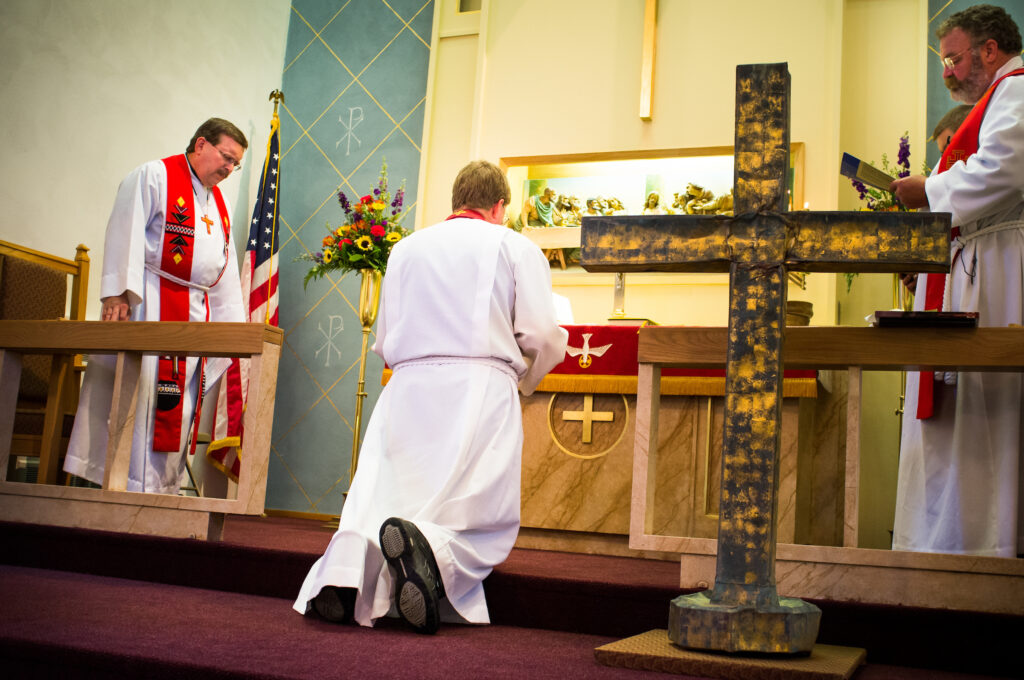
*This is Part two of seven in a series of Basic Theology of Mercy Work Series*
Lutheran Congregational Mercy Work
There has recently been a resurgence of congregational mercy work across the congregations in the LCMS. Much of this was due to the guidance of Harrison, who wrote to pastors and lay leaders of the LCMS on the theology of mercy and how to incorporate a mercy that flows from Lutheran congregations to the needy in their community.[1] In addition, the 2001 Synod convention began a deaconess program at both seminaries for women to study deaconess ministry as a vocation. This expansion of the deaconess program, has increased the number of deaconess church workers, it has created a greater awareness of mercy work, and it has had a lasting influence across the Synod.
Mercy work in and of itself is not the Gospel message of Jesus’ life, death, and resurrection for the forgiveness of sins. That is, it is not a means of grace. However, mercy work and service to one’s neighbor is the natural outgrowth of the Gospel message within a believer’s life (Eph. 2:10). One benefit of congregational mercy work is that it often breaks down barriers that many unchurched people have toward the church and Gospel message. When congregations show up at disaster sites to help victims rebuild their lives, Lutheran pastors and members are welcomed by those who would otherwise never enter a church building. Additionally, through merciful service projects, pastors and lay members are able to build relationships and plant the seeds of the Gospel message.
Our motivation for mercy work is the Gospel, and our primary aim of mercy work seeks to serve the community’s temporal and spiritual needs. The Lutheran congregation holistically serves the needs of both body and soul through the marks of the church. And when people are going through times of crisis, they often have spiritual needs that only God can fill. In the midst of disaster, victims of tragedy can encounter the office of holy ministry, which includes preaching of the Law and Gospel, Confession and Absolution, Baptism, Confirmation, and the distribution of the Lord’s Supper for the ongoing forgiveness of sins. By caring for temporal needs, the Lutheran congregation creates opportunities of care for the universal spiritual needs of forgiveness and peace with God that comes from Christ’s forgiveness.
[1] Part of this renaissance includes the book, Mercy in Action, the writing, translation, and re-publishing of essays from leading Lutheran theologians from the past and present (see bibliography).
